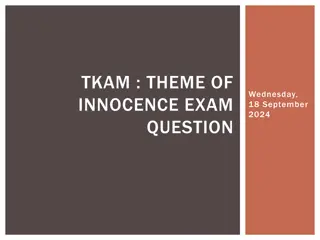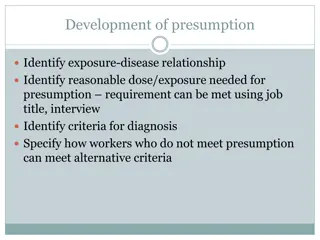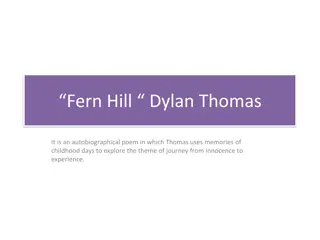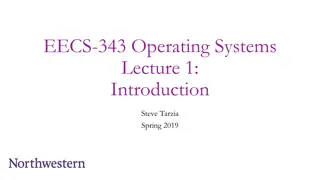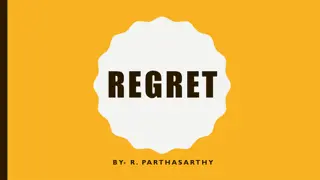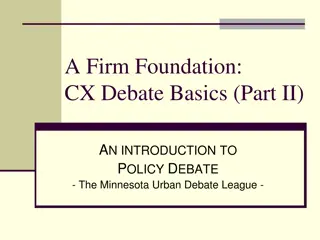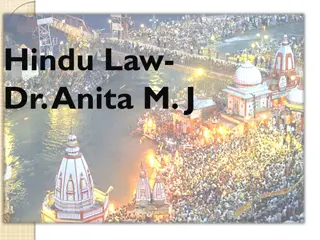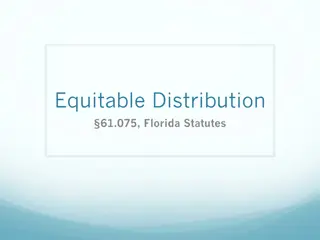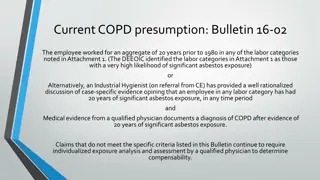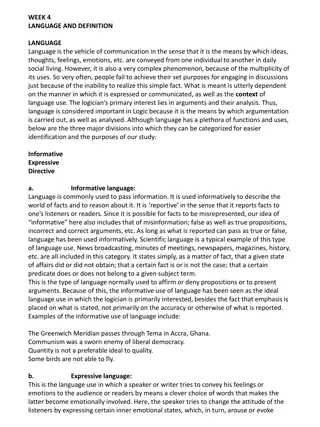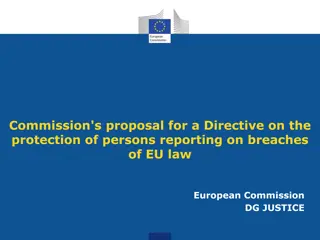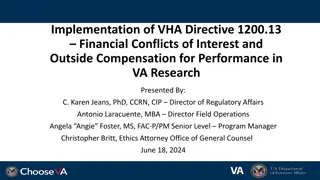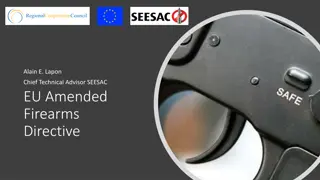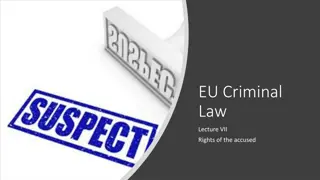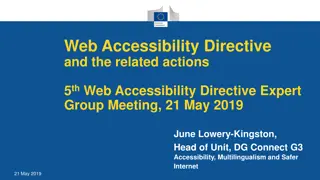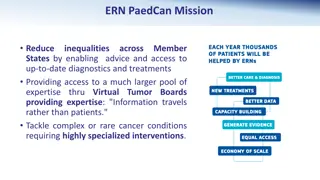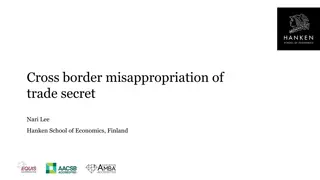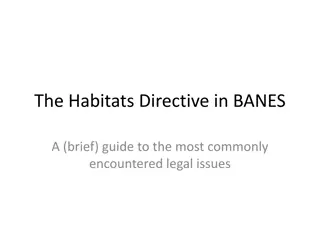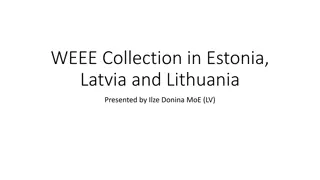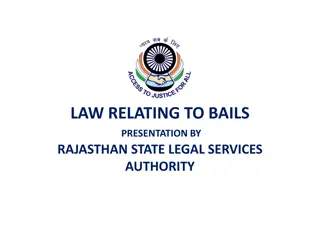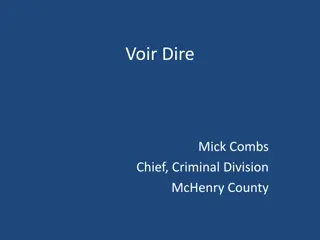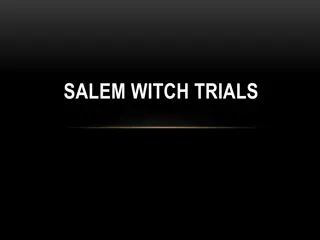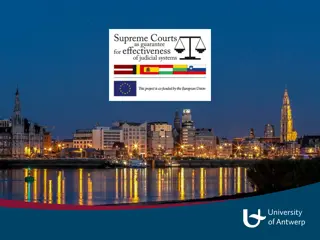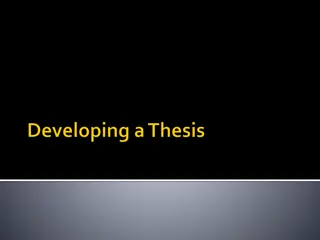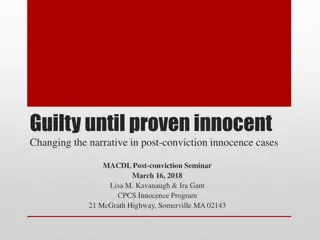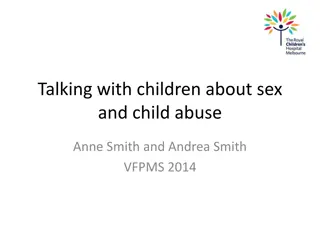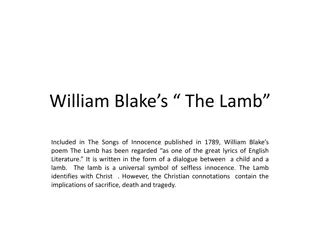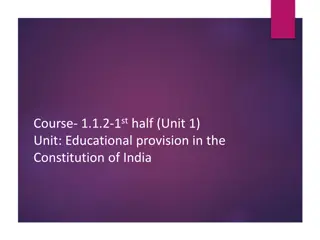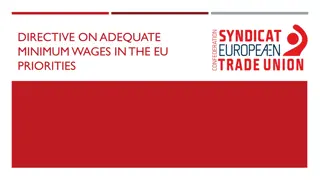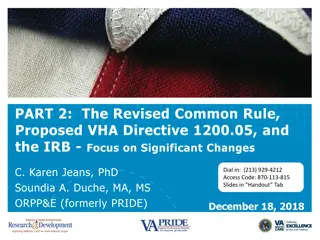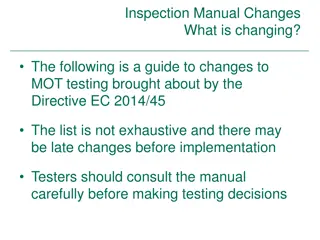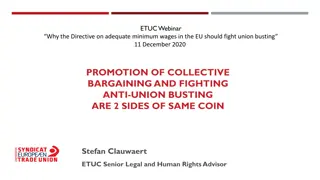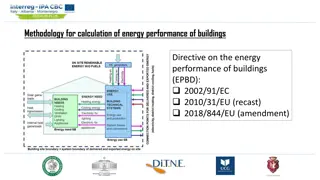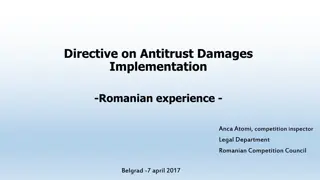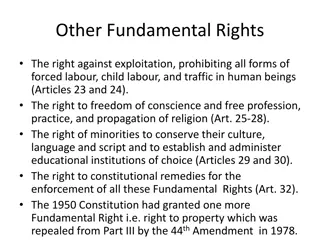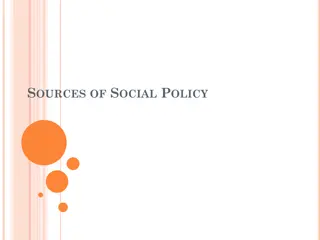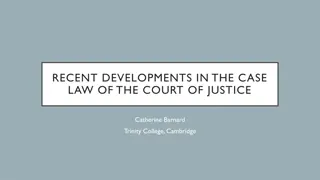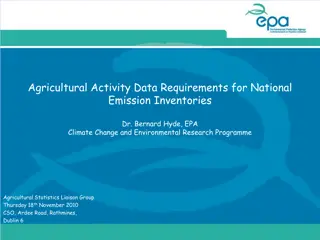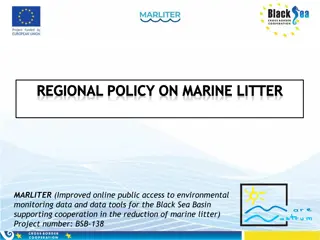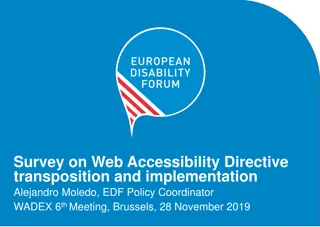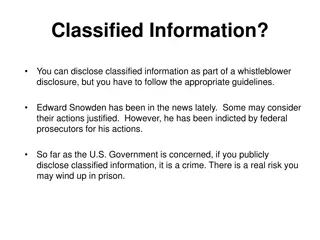Presumption of Innocence in EU Directive 2016/343 Explained
This article delves into the essential aspects of the presumption of innocence as outlined in EU Directive 2016/343. It covers the scope of application, burden of proof, right to silence, and other related provisions. The text emphasizes the significance of treating individuals as innocent until proven guilty, highlighting the implications within criminal proceedings and external factors. The concept of in dubio pro reo and the right to remain silent are also explored, shedding light on the defendant's rights and the responsibilities of investigating authorities.
Download Presentation

Please find below an Image/Link to download the presentation.
The content on the website is provided AS IS for your information and personal use only. It may not be sold, licensed, or shared on other websites without obtaining consent from the author. Download presentation by click this link. If you encounter any issues during the download, it is possible that the publisher has removed the file from their server.
E N D
Presentation Transcript
Directive 2016/343/EU DOROTA CZERWI SKA
Directives Structure Scope of application Presumption of innocence (Article 4): And its external aspect (Articles 5 and 6) And its consequence: the burden of proof (Article 7) right to silence and freedom from self-incrimination (Article 8) Right to be present at trial (Article 8) Remedies: Reopening in absentia proceedings (Article 9) General right to remedy (Article 10 (1)) Assessment of evidence (Article 10 (2)) A standard non-regression provision (Article 13) 2
Its an underlying assumption of modern criminal procedures: the court and other procedural authorities are supposed to treat the accused as Innocent until proven guilty. However, nowadays it does not only refer to treatment within criminal proceedings but also to external aspects (public statements of authorities, media coverage, use of force measures as implying guilt). Presumption of inncocence 3
From the assumption that the defendant is innocent until proved guilt, flows another one: it is up to the investigating authorities to prove the defendant s guilt, not the other way round. However, as different legal cultures and systems are represented in the EU, the legislator clearly allowed imposing the duty to seek evidence on the court as well. Burden of proof 4
This is another consequence of the presumption of innocence. If someone is innocent until proved guilty and the guilt was not fully proved (=there are some doubts), they have to be resolved in favor of the presumption of innocence. In dubio pro reo rule 5
This is another consequence of the presumption of innocence and the burden of proof. If I am not guity until proved otherwise and it is up to the prosecutor to prove the guilt, I may just sit and wait. Right to remain silent and right not to incriminate oneself Thus, I have the right to remain silent and not to incriminate myself. However, the state can extract (even forcefully) from me any evidence that exists independently of my will. I have to passively bear these acts. However, I have no duty to actively cooperate. The fact that I use that right might not harm me in proceedings. However, cooperation with authorities might help me in sentencing. 6
Case study no. 1 A., B. and C. allegedly committed a crime of drug trafficking together, in cooperation. A. and B. remain silent. However, C. decides to cooperate and tells to the prosecutor that they are all guilty and describes the crime and the role of the participants. He gets convicted without trial upon an agreement (plea bargain). The judgment states that he committed drug trafficking in cooperation with A. and B. Then the case of A. and B. goes to the court and this previous judgment is known to the court. Is the presumption of innocence violated? 7
CJ EUs answer No, as long as it is stated in this previous judgment (or plea agreement) that the guilt of A. and B. has not been established in a way demanded by the law. E.g. in cooperation with A. and B. against whom a separate investigation is ongoing Judgment of 5 September 2019, C-377/18, AH and others 8
Case study no. 2 A., B. and C. allegedly committed a crime of drug trafficking together. The case is already at trial. A. and B. remain silent. However, C. pleads guilty and describes the crime and the role of the participants. He concludes a plea bargain on lenient terms. National law demands that A. and B. give their consent to such a deal. Is the presumption of innocence violated due to the fact that if A. and B. give their consent, it might make them look guilty? 9
CJ EUs answer: No. It is not regulated at all by the Directive which does not refer to the defendant s right to a negotiated settlement nor does it confer the right to get a lenient sentence in case of cooperation with the authorities. Judgment of 24 September 2019, C-467/19, QR v. Spetsializirana prokuratura 10
Article 8 limits the possibilities of proceeding in the absence of the accused to 2 situations: The person has been informed of the trial (in person) and the consequences of their absence Right to be present at trial The person has been informed of the trial and is represented by a lawyer The proceedings may be conducted in the absence of circumstances described above if the person cannot be located although efforts have been made. In this case the person has the right to a new trial after she is finally present. states may decide that 11
Case study no. 3 The accused was informed of the dates of all court sessions during trial. Over a few years of trial he was absent twice due to illness. After the first absence he was informed of the actions conducted meanwhile and stated that he does not demand that they are repeated. After the second absence he was informed as well, but demanded that a certain action was repeated, which actually took place. Assume there was no lawyer present. Was the right to be present at trial as protected by the Directive violated? 12
CJ EUs answer: No. If the accused stated afterwards that he did not want to repeat the actions, he explicitly waived his right to be present at this part of trial. If the action was repeated and the accused could ask his questions to the witness, he is not a person absent at trial at all. Judgment of 13 February 2020, C-688/18, TX and UW v. Spetsializirana prokuratura 13
Thank you for your attention Next week: Directive 2016/1919/EU DOROTA CZERWI SKA


